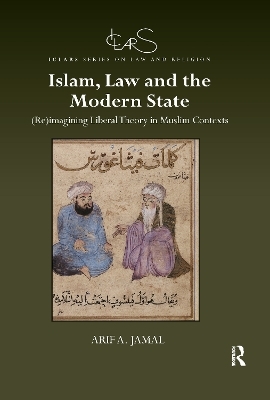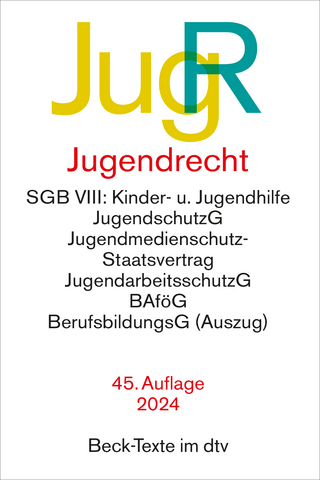
Islam, Law and the Modern State
Routledge (Verlag)
978-0-367-89372-9 (ISBN)
- Titel z.Zt. nicht lieferbar
- Versandkostenfrei
- Auch auf Rechnung
- Artikel merken
Within the global phenomenon of the (re)emergence of religion into issues of public debate, one of the most salient issues confronting contemporary Muslim societies is how to relate the legal and political heritage that developed in pre-modern Islamic polities to the political order of the modern states in which Muslims now live. This work seeks to develop a framework for addressing this issue. The central argument is that liberal theory, and in particular justice as discourse, can be normatively useful in Muslim contexts for relating religion, law and state. Just as Muslim contexts have developed historically, and continue to develop today, the same is the case with the requisites of liberal theory, and this may allow for liberal choices to be made in a manner that is not a renunciation of Muslim heritage.
Arif A. Jamal is Associate Professor at the National University of Singapore, Faculty of Law where he teaches comparative law, legal theory, law and religion, and Islamic law. He has studied and researched in law, politics and Islamic studies in Canada, the UK and the USA, and writes on issues of law and religion, comparative law and law in Muslim contexts.
Introduction
i. The challenge
ii. The structure
iii. The approach
iv. The contribution and the argument
Chapter 1: Developing the concept of ‘justice as discourse’
1.1 The challenge of diversity: liberal theory’s normative commitment
1.2 Alternatives to Rawls’ theory
1.3 Constructing a theory: justice as discourse
1.4 Justice as discourse versus some alternatives
1.5 Conclusion
Chapter 2: Justice as discourse in application
2.1 Justice as discourse and classical liberal theory
2.2 Justice as discourse and the Secular
2.3 Implementing justice as discourse: the axes of state, law, civil society and politics
2.4 Conclusion
Chapter 3: Muslim Contexts I: History and heritage
3.1 Why use the term ‘Muslim contexts’?
3.2 What is the same, and what is different, about Muslim contexts?
3.3 The politico-legal legacy
3.4 Conclusion and lessons from the heritage
Chapter 4: Muslim Contexts II: Contemporary contexts
4.1 Re- working the law: replacement, codifications and ‘etatization’
4.2 The nexus of Din, Dunya and Dawla: religion, politics and the state – divided?
4.3 Contemporary opinions in Muslim populations
4.4 Prospects for democracy?
4.5 Conclusion
Chapter 5: Terms of engagement: (re)imagining religion, law, state and society for Muslim contexts
5.1 Challenges to the uses of liberal theory
5.2 Defining a practical political model
5.3 The bridge from politics to law: Menski’s kite
5.4 The overall argument and conclusion
Conclusion
| Erscheinungsdatum | 15.11.2019 |
|---|---|
| Reihe/Serie | ICLARS Series on Law and Religion |
| Verlagsort | London |
| Sprache | englisch |
| Maße | 174 x 246 mm |
| Gewicht | 300 g |
| Themenwelt | Recht / Steuern ► Allgemeines / Lexika |
| Recht / Steuern ► Arbeits- / Sozialrecht ► Sozialrecht | |
| Recht / Steuern ► EU / Internationales Recht | |
| ISBN-10 | 0-367-89372-X / 036789372X |
| ISBN-13 | 978-0-367-89372-9 / 9780367893729 |
| Zustand | Neuware |
| Informationen gemäß Produktsicherheitsverordnung (GPSR) | |
| Haben Sie eine Frage zum Produkt? |
aus dem Bereich


